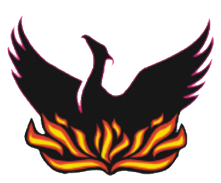History
Why do we teach History?
History inspires children’s curiosity to know more about their own past and that of the wider world. We aim to offer a high-quality history education that equips pupils with the skills to ask perceptive questions, think critically, examine sources of evidence, engage in debate, and develop perspective and judgement. History helps children to develop their understanding of how life was different in the past, the challenges of their time, the diversities of societies and relationships between different groups as well as their own identity and the process of change.
The national curriculum for History aims to ensure that all pupils:
- Know and understand the history of these islands as a coherent, chronological narrative, from the earliest times to the present day: how people’s lives have shaped this nation and how Britain has influenced and been influenced by the wider world.
- Know and understand significant aspects of the history of the wider world: the nature of ancient civilisations; the expansion and dissolution of empires; characteristic features of past non-European societies; achievements and follies of mankind
- Gain and deploy a historically grounded understanding of abstract terms such as ‘empire’, ‘civilisation’, ‘parliament’ and ‘peasantry’.
- Understand historical concepts such as continuity and change, cause and consequence, similarity, difference and significance, and use them to make connections, draw contrasts, analyse trends, frame historically-valid questions and create their own structured accounts, including written narratives and analysis.
- Understand the methods of historical enquiry, including how evidence is used rigorously to make historical claims, and discern how and why contrasting arguments and interpretations of the past have been constructed.
- Gain historical perspective by placing their growing knowledge into different contexts, understanding the connections between local, regional, national and international history; between cultural, economic, military, political, religious and social history; and between short- and long-term timescales.
How do we approach History at Chapelfield?
Our History curriculum aims to excite the children and allow them to develop their own knowledge and skills as historians. Children are taught chronological understanding, knowledge and interpretation and historical enquiry in order to organise and communicate their learning in a range of different way including opportunities for writing outcomes. History is taught in a cycle along with Geography and R.E. across the year. Children will cover two topics of History per year. Topics are blocked into Cycle A and Cycle B and are taught in accordance with the National Curriculum with meaningful cross-curricular links made where possible.
Within the Early Years Foundation Stage, history is encompassed within ‘understanding of the world’ through a combination of focused teaching and hands on experiences. Staff use and model effective and high-quality language to encourage children to talk about what they notice and to ask questions.
How History (Dark Blue) in EYFS Links to Year 1
Assessment
Assessment in KS1 and KS2 begins with an initial assessment of historical vocabulary which informs learning. Children are then exposed to new vocabulary and knowledge, which is supported by the use of the class history display, leading to a final assessment of the unit. In this assessment children demonstrate their knowledge and understanding of the key historical vocabulary and facts covered.
Useful Links:
Below are some links for more detailed information about History at Chapelfield:
-
History-Overview-Year-1-and-2-Cycle-B
download_for_offline
download_for_offlineHistory-Overview-Year-1-and-2-Cycle-B
- History-Overview-Year-4-and-5-Cycle-B download_for_offline
download_for_offlineHistory-Overview-Year-4-and-5-Cycle-B
- History-Overview-Year-5-and-6-Cycle-B download_for_offline
download_for_offlineHistory-Overview-Year-5-and-6-Cycle-B
- KUW download_for_offline
- Year-3-and-4-Cycle-B-Planning-Outline download_for_offline
download_for_offlineYear-3-and-4-Cycle-B-Planning-Outline
Here is a copy of our Cycle A History 2021-2022. Please note that the next cycle A in 2023-2024 may differ to ensure curriculum coverage in all year groups.
-
Year-1-and-2-Cycle-A-History-Overview
download_for_offline
↑
download_for_offlineYear-1-and-2-Cycle-A-History-Overview
- Year-3-and-4-Cycle-A-History-Overview download_for_offline
download_for_offlineYear-3-and-4-Cycle-A-History-Overview
- Year-4-and-5-Cycle-A-History-Overview download_for_offline
download_for_offlineYear-4-and-5-Cycle-A-History-Overview
- Year-5-and-6-Cycle-A-History-Overview download_for_offline
download_for_offlineYear-5-and-6-Cycle-A-History-Overview
- Year-3-and-4-Cycle-A-History-Overview download_for_offline
- History-Overview-Year-4-and-5-Cycle-B download_for_offline

